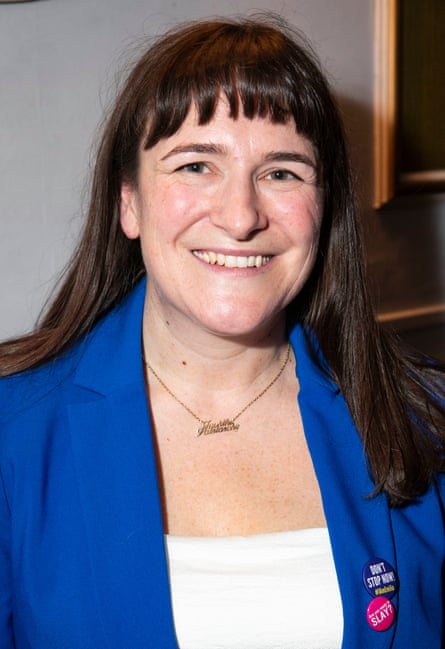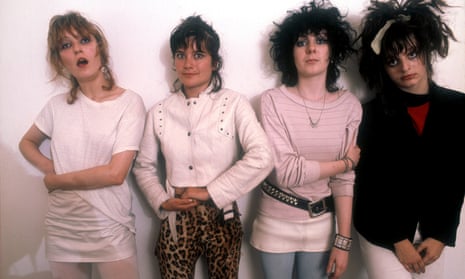It was a bit of a “pinch me” moment, to be honest. Earlier this month I sat in the rehearsal room for Typical Girls and watched our incredible cast play the music of the Slits to Tessa Pollitt, an original member of the band.
When I first started writing this show, never in my wildest dreams could I have imagined we would get to this point. This absolute legend, punk royalty, was beaming at the liveness of it all and so were we. This is what we’ve all been aching to do.
The Slits epitomised rebellion and self-expression, finding your own unique voice and ignoring the haters, rejecting the status quo and challenging what it means to be a woman. Their music bursts with influences from all over the world, and sparks joy and fury and playfulness. I’ve long been a fan, so being able to create characters who would find layers of meaning in the lyrics of these songs has been such a wonderful opportunity.
This piece of gig-theatre has been six years in the writing and was halted by Covid when we had to postpone our dates for late 2020. Thankfully Clean Break and Sheffield Theatres were able to reschedule it. Finally we are staging the piece and I couldn’t be more excited. It’s a big, messy, joyous show about trying to exist in a society that doesn’t care for you and the redemptive power of creativity.

When collaborating with Clean Break, a theatre company that works with women affected by the criminal justice system – in prisons and at its London studios – I was sent into HMP Send in Woking to create a short piece of theatre with some women who were in the Pipes unit there. It is a mental health unit that works with women who have personality disorders and who have already completed fairly intensive treatments. It’s what’s called a “progression unit” and it means they are usually pretty close to release.
We had come in to create a short piece of theatre informed by their experiences in prison, which they performed to the other women and staff in the unit. It was an eye-opening, joyful and humbling few sessions. The joy of working with Clean Break is that they fully invest in work that is transformative and creatively exciting, and the women were given the freedom to explore what that meant. As the playwright in the room, I was tasked with cobbling together a script we could all work from and they could continue to mould and play with. It was an excellent exercise in collaboration.
So when I was commissioned to write a longer piece for Clean Break I came back to this experience in the unit. In fact I think the initial idea came from an instruction I had received on my way into HMP Send on the first day there. I was told not to tweet about what we were doing or to publicise it in any way. When I asked why, I was told very matter-of-factly that if it got into the press we were at risk of being shut down. Or even worse, the unit was at risk of it. The media didn’t take kindly to arty types doing creative stuff with people in prisons.

I was mystified how anyone could think that the work was something to get angry about. The work we and other visiting companies did was around the healing nature of “play” and learning to form good attachments. The studies showed unequivocally that Pipes units saw a huge reduction in reoffending after release. These units worked.
So when I started writing the play I explored these ideas of restrictions and quiet projects working under the radar to effect change. I explored what it means to rebel against a system when you’re living in the most oppressive ones. I explored what people do under duress to express themselves and find humanity. I explored how art and music and creativity can heal. And I channelled these things into this play. Then I realised it needed music – and what better music to work with than that of the Slits?
And sitting in the rehearsal room with Tessa, listening to it all coming together, was beyond anything I could have dreamed of. Our incredible cast are going to blow the roof off the Crucible, and show what music and theatre is capable of. An empathy machine like no other.
Typical Girls is at the Crucible, Sheffield, 24 September–16 October and streamed online on 6 October.
